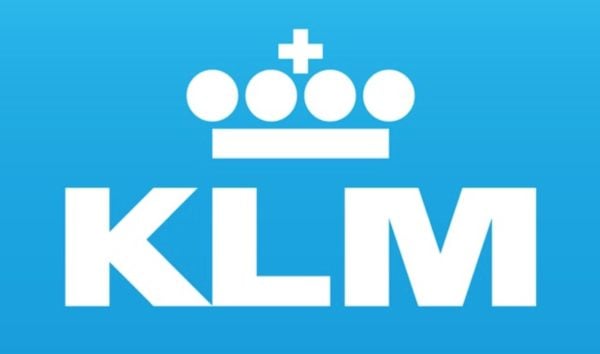
KLM Logo e1560957930963
October 7th, 2019 marks a unique occasion in the world of commercial aviation, something that had never happened before: the first airline to turn 100 years of continuous operations and under the same brand name.
KLM’s CEO, Pieter Elbers, addressed the media at a special event next to Amsterdam’s Schiphol airport, the airline’s hub.
The mood was, obviously, celebratory, and Mr. Elber’s presentation was not without its doses of emotion and nostalgia. It kicked out with a video recap of some of the most important milestones of this past century of KLM.
The message was clear, though: “It is important to look at the past and be proud, but even more important to look forward into the future” Mr. Elbers stated before elaborating further on what was to be one of the recurring topics of the day: sustainability in the airline industry.
This was also very present at the joint press conference and Q&A session Pieter Elbers and its counterpart for the whole Air France-KLM group, Ben Smith, held later at Hangar10, the main venue for KLM’s 100th-anniversary celebrations.
In fact, one of the highlights of the temporary exhibition and KLM-themed festival that took place at Hangar10 was a mockup of the “Flying V”, a delta-wing airliner concept devised by the Technical University of Delft with the collaboration of KLM.
This aircraft is unlikely to become real in the near future, yet, it is hailed as an example of the potentially disruptive technologies that KLM keeps an eye on with a view to making flying more efficient and environmentally friendlier. In fact, and regardless of the optimistic assertions by other airlines, neither Mr. Elbers nor Mr. Smith thinks that a mid-sized electric plane capable of replacing aircraft currently in service will be ready within the next 15 years, instead and for the time being, continuous gradual improvement offers a slower but steadier alternative.
“It’s not a matter to stop flying, but to fly more efficiently,” Mr. Elbers said, echoing the “Fly responsibly” motto that has been adopted by KLM.
Biofuels and synthetic kerosene, a promising technology in which Schiphol airport has recently invested, are some of the areas in which KLM is committing its resources.
There were no big announcements in terms of fleet, network or operations during the event. Both KLM and Air France are happy with recent procurement decisions, with KLM ordering more Embraer E-Jets and Air France opting for the A220. Although a major Boeing operator, the MAX debacle has left KLM unaffected, since it has so far remained committed to the Boeing 737 NGs until pretty much the end of the production run. “Our current fleet mix gives us great flexibility for years to come” the two CEOs stated.
Also, no word on the potential effect on the Latin American market of Delta’s acquisition of a stake in LATAM. Mr. Elbers highlighted how this has been a strategic growth region for Air France-KLM and one where the synergies between both companies work at its best. At the moment, Air France-KLM has a partnership with Brazilian carrier GOL. Around 25% of passengers flying into Fortaleza, in northern Brazil, and Sao Paulo, connect onwards into GOL’s network.
KLM is also soon going to retire its Boeing 747 Combis and focusing on belly cargo, particularly when it comes to value-added cargo, such as pharmaceutical products.
And what about a potential role for Air France-KLM in Alitalia’s future? “We are not looking at any investment” was Mr. Elbers’ stark reply.
Views: 8



